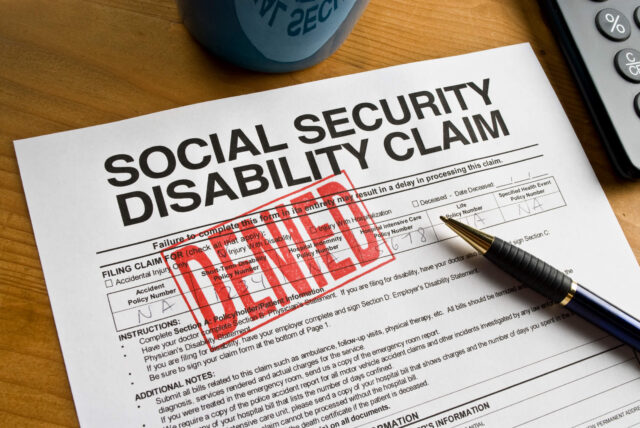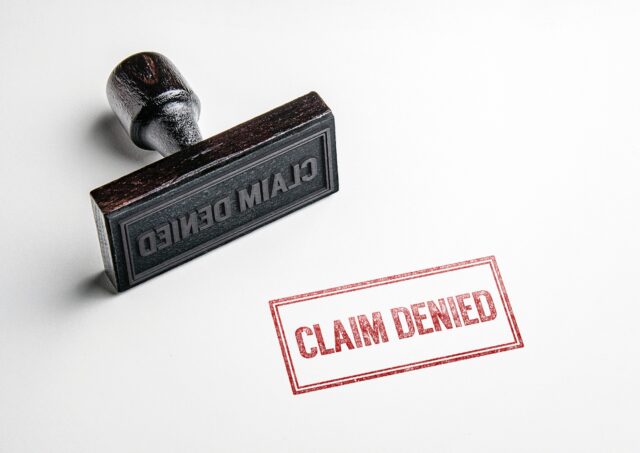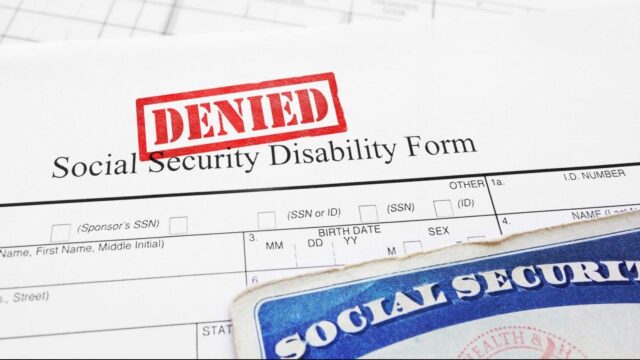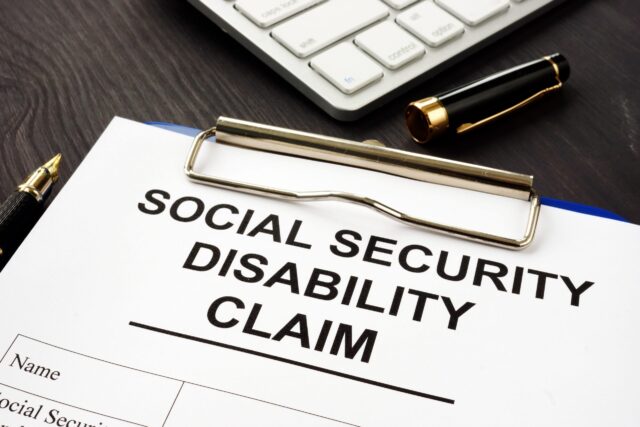
When injuries sustained in an accident or disease prevent you from returning to work and earning a living, your future can appear dismal. Disability benefits provide disabled people hope in the form of financial help. The procedure of applying for disability benefits can be lengthy. The way applications are screened to establish eligibility has been the topic of news headlines in recent years about otherwise qualified people being refused benefits. Still, it’s vital to know what you can do if your claim is denied.
Reasons for Denial of a Disability Benefits Claim

Many people who apply for disability benefits for the first time are denied. It’s critical to understand why your claim was refused. Because you’ll know what your claim was missing or where your claim can be accepted, it can assist you to win your appeal.
You will receive a denial letter in the mail if you are denied and the letter will explain why your claim was refused and what you should do next to appeal the decision.
A claim may be refused for a variety of reasons. The following are some of the most typical grounds for a disability claim being denied:
Lack of Medical Evidence: Claims are frequently refused because the claimant has failed to show sufficient medical evidence that the ailment they are experiencing is severe enough to prevent them from working. You must demonstrate that you will be unable to work for at least twelve months. Examine the Service Canada listing for the disease you’re suffering to prevent a lack of medical evidence in your appeal. Make sure you’ve specified all of the necessary tests, documentation, therapies, and so on for your listing.
Failure to Follow a Treatment Plan: If you can’t prove that you’ve been following your doctor’s instructions for your condition, you could be denied benefits. A treatment plan will assist you in demonstrating to a disability examiner that you are unable to work due to your current condition. The examiner may have difficulty determining if your condition is affecting your ability to work if you don’t have a treatment plan. If there is a specific reason why you are unable to follow your treatment plan, you should explain this in your appeal.
Diagnosis Problem: Applying for disability benefits before receiving an official diagnosis is a surefire way to have your claim denied. To evaluate claims based on certain medical conditions, Service Canada has specific guidelines. They compare these to your documents to see if you’ve sought and received sufficient treatment. They also make sure that your doctors agree that you can’t work.
What To Do If Your Disability Claim Is Denied?

Fighting a denial of Disability benefits takes a lot of time and effort, which you probably don’t have if you’re very ill or disabled. A disability insurance lawyer such as http://www.disabilitylawyertoronto.ca/ can take some of the weight off your shoulders by assisting you in preparing a compelling case for Disability benefits approval.
Appeal The Decision
An application is submitted through the insurance company’s internal appeal process to appeal the decision. If your claim was denied for the following reasons, appealing the decision maybe your best option:
- You did not give the required medical evidence
- Or the information was inadequate or confusing, and you did not supply any other paperwork that was requested.
If you decide to file an appeal, contact your doctor or employer and request that they give all of the necessary information. This could lead to the decision being overturned and your claim being allowed. It is critical to answer to the insurance company as quickly as possible, as there will be time constraints that must be adhered to, as stated in your policy.
Before filing an appeal, there are a few things to think about

While you may believe you have a strong chance of winning an appeal and having the insurance company reversed their claim denial, there are some variables to consider before proceeding.
- An appeal could take months, if not years, and you will be unable to work and earn an income during this period, leaving you with extremely limited financial resources to survive on.
- You risk missing the deadline to initiate a case, which insurance companies claim starts when they send you their first refusal letter.
- You may present further medical proof that is detrimental to your appeal.
What Rights Do You Have When Filing an Appeal?
Although having your disability claim denied can be stressful, it’s vital to know that you have rights. Your employer will be notified by the insurance provider that you do not qualify for disability coverage and that you are able to work. Your boss may then inquire as to when you intend to return to work. If you want to appeal a disability ruling, you must notify your employer in writing that you will do so.
You also have the option of hiring a disability denial lawyer who is familiar with the strategies used by numerous insurance companies to deny claims. A lawyer will clarify your rights and build a compelling argument to increase your chances of winning your appeal. A lawyer will protect your rights and fight for you to secure the payments you deserve if you need to take your disability appeal to court.
Get legal guidance and assistance

It can be a complex, confusing, and time-consuming process to file or appeal a disability claim denial. Each policy is unique. A claim can be denied if you submit an incomplete or inaccurate application. A personal injury or disability insurance attorney can assist you in understanding your policy, notifying you of any deadlines, guiding you through the claim process, reviewing your forms and documentation, and dealing with the insurance company.
This will assist you in receiving the benefits you are entitled to in a timely manner. Even when an individual has a valid reason for claiming long-term disability benefits, insurance companies frequently dismiss the claim or offer a significantly smaller sum than requested.
Conclusion
Most of the people who are unable to work due to their health circumstances are dependent upon disability claims. However, sometimes their claim gets denied. If you have read the above material carefully, you are well aware of the things you need to do when you or someone you know gets denied for the claim that is rightfully yours.












